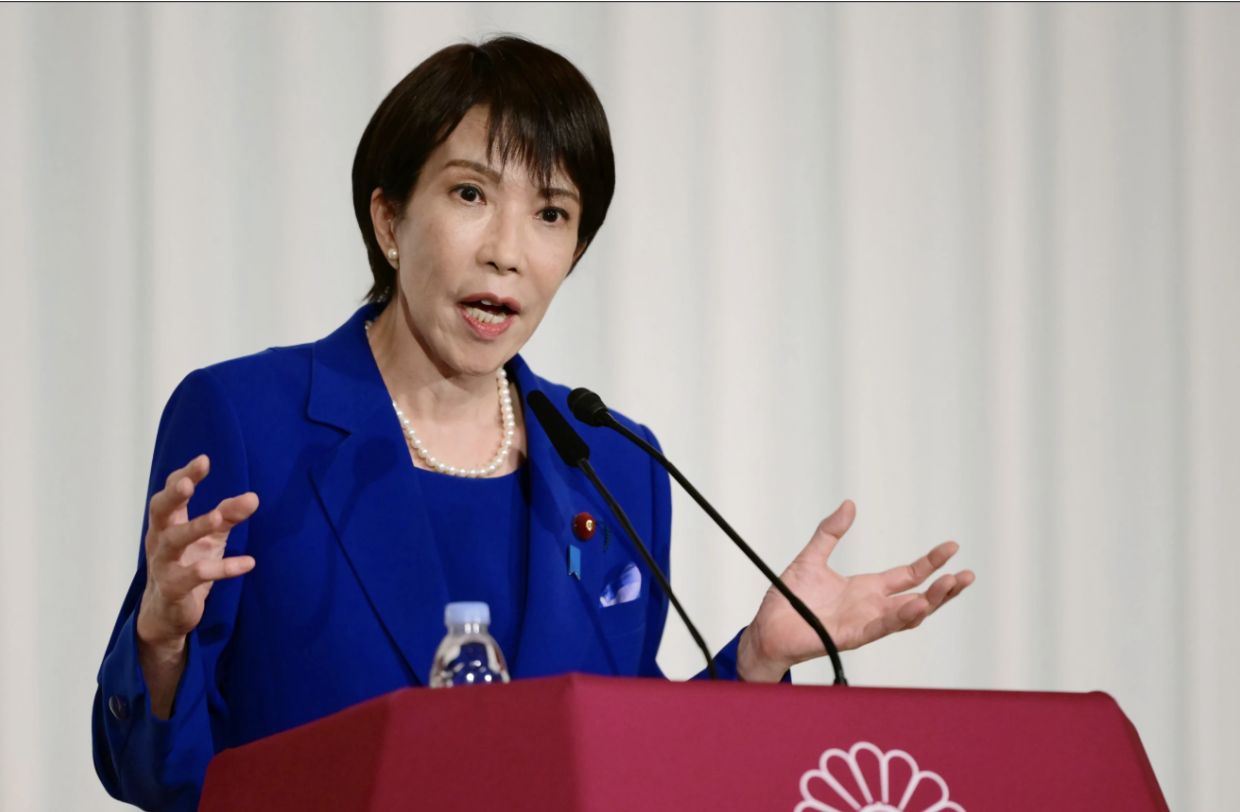Japan PM Takaichi: "Defense Spending to Reach 2% of GDP Two Years Ahead of Schedule"
Sanae Takaichi, the newly-elected leader of Japan’s ruling party, the Liberal Democratic Party(LDP), attends a press conference after the LDP presidential election in Tokyo Saturday, Oct. 4, 2025. Photo: AP News
The new Japanese Prime Minister Takaichi Sanae claimed she would achieve her goal of increasing defense spending to 2% of GDP two years earlier than scheduled.
In her first speech at the National Assembly building in Tokyo on the 24th, Prime Minister Takaichi mentioned, “We will try to achieve the goal of defense spending, which reaches 2% of GDP, two years earlier,” adding, “The military activities of neighboring countries such as China, North Korea, and Russia are a serious concern.”
Since the first day of her inauguration, Prime Minister Takaichi ordered an early revision of the three security documents (National Security Strategy, National Defense Strategy, and Defense Development Plan) that called for increased defense costs, and replaced the head of foreign security policy with a person based on diplomatic strategy under former Prime Minister Shinzo Abe. Analysts say that Prime Minister Takaichi, a hard-line conservative, is strengthening its military power to put pressure on the United States to expand its defense costs and agreements with her coalition government partner, the Japan Restoration Association.
Sanae Takaichi, the newly-elected leader of Japan’s ruling party, the Liberal Democratic Party(LDP), gestures as she leaves the party’s leaders’ office after the LDP leadership election in Tokyo Saturday, Oct. 4, 2025. Photo: AP News
The early revision of the three major security documents, which contain the goal of increasing defense spending to 2% of GDP in 2027, is intended to further increase defense spending by more than 2%. The Donald Trump administration is demanding Japan increase its defense spending to 3.5% GDP.
However, Takaichi’s accelerated military agenda is facing both domestic and international scrutiny. While Japan’s expanded security role lines up with the United States’ interests in countering China, the neighboring countries such as South Korea and China are wary of Japan’s rapid military normalization. Critics argue that Japan risks increasing regional tensions and decreasing public trust at home without transparent budget planning and clear limits on military expansion. Whether Takaichi can balance deterrence, fiscal responsibility, and diplomatic stability will determine the long-term credibility of her security policy.


